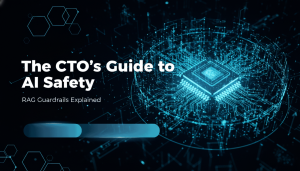Introduction
AI chatbots have made significant strides in the healthcare industry by leveraging artificial intelligence to offer personalized support and streamline processes. By utilizing natural language processing (NLP) and machine learning, these chatbots empower patients and help bridge gaps in healthcare services. The integration of AI technology has brought about a revolution in healthcare, introducing innovative solutions such as predictive analytics and AI-powered medical devices that have transformed the way services are delivered and improved patient care outcomes.
From symptom checkers to virtual nurse assistants, AI chatbots play a crucial role in enhancing patient communication, reducing administrative burdens on healthcare providers, and ultimately improving overall healthcare accessibility for individuals. These chatbots can provide quick and accurate responses to patient inquiries, offer guidance on medical conditions, schedule appointments, and even monitor patient progress remotely.
Furthermore, AI chatbots have the potential to assist in triaging patients based on the severity of their symptoms, thereby prioritizing urgent cases and ensuring timely care delivery. By automating routine tasks and offering round-the-clock assistance, these chatbots contribute to more efficient healthcare operations and better patient experiences.
The Evolution of AI in Healthcare
Artificial intelligence (AI) has made significant advancements in the healthcare industry, transforming the way healthcare is delivered. The use of AI in healthcare involves the application of AI technologies to various aspects of the healthcare system. From managing medical records to analyzing medical images, AI has revolutionized health systems. The use of AI in healthcare has led to improved diagnoses, personalized care, and the development of AI-powered medical devices. AI has accelerated the pace of change in the healthcare industry, enabling healthcare providers to deliver more efficient and effective care.
From Data Management to Personalized Care
AI has revolutionized healthcare data management, enhancing the efficiency of managing health records and EHRs. This enables providers to access and analyze patient information effectively, leading to improved care and personalized treatment plans.
With AI and predictive analytics, healthcare providers can analyze vast amounts of patient data to predict outcomes and deliver proactive, personalized care. This helps in identifying high-risk patients for timely intervention, optimizing resource allocation, and preventing adverse events.
AI-driven data management in healthcare ensures personalized care and better patient outcomes by enabling informed decisions and precise treatments.
Milestones in AI Development for Healthcare
AI in healthcare has made significant advancements, especially with AI-powered medical devices transforming patient care. These devices use machine learning to analyze data for real-time insights on diagnosis and treatment. Generative AI is creating personalized treatment plans and accurate outcome predictions. These innovations are improving healthcare delivery efficiency, potentially revolutionizing precision medicine and expediting drug discovery.
Beyond enhancing diagnostic accuracy and treatment effectiveness, AI streamlines administrative tasks and optimizes workflows in healthcare facilities. From automating appointments to improving medical imaging analysis, AI is reshaping healthcare operations. Predictive analytics anticipate patient needs, optimize resource allocation, and enable proactive care interventions.
Integrating AI algorithms into electronic health records enhances data management across healthcare settings. By utilizing AI for data integration and analysis, organizations gain valuable insights for better clinical decision-making, improved patient outcomes, and ongoing quality enhancement initiatives.
Embracing AI innovations is essential for healthcare professionals to deliver personalized care effectively, optimize treatments, and enhance patient satisfaction and health outcomes through continuous learning and adaptation to emerging technologies.
Understanding AI Chatbots in Healthcare
AI chatbots are becoming increasingly prevalent in the healthcare industry, providing virtual assistance to patients and healthcare providers. These chatbots leverage AI technologies such as natural language processing (NLP) to understand and respond to patient queries. By utilizing NLP, AI chatbots can interpret patient communications and provide relevant information and support.
These AI chatbots act as virtual assistants, helping healthcare providers streamline processes, improve patient communication, and enhance overall healthcare accessibility. The use of AI technologies in healthcare has paved the way for more efficient and personalized patient care, empowering patients to take control of their health and well-being.
Definition and Functionality
AI chatbots are virtual assistants powered by artificial intelligence (AI) that are designed to enhance communication and provide support in the healthcare industry. These chatbots utilize AI technologies such as speech recognition and natural language processing (NLP) to understand and respond to patient queries and requests.
The functionality of AI chatbots in healthcare varies depending on their specific design and purpose. They can range from simple symptom checkers to virtual nurse assistants that provide around-the-clock support and assistance to patients. AI chatbots can facilitate patient education, provide information about medications and treatment options, schedule appointments, and even assist in monitoring chronic conditions.
By leveraging AI technologies, AI chatbots in healthcare enable effective patient communication, reduce the burden on healthcare providers, and improve overall healthcare accessibility and efficiency.
Types of Healthcare Chatbots
AI chatbots in healthcare come in various types, each serving different purposes and catering to specific healthcare needs. Some of the common types of healthcare chatbots include:
- Symptom checkers: These chatbots help patients assess their symptoms and provide preliminary information and guidance on potential causes and recommended actions.
- Virtual nurse assistants: These chatbots act as virtual nurses, providing around-the-clock support to patients. They can answer questions, provide information about medications and treatment options, and assist in scheduling appointments.
- Health information providers: These chatbots specialize in providing accurate and up-to-date health information to patients. They can answer general health-related queries, provide information about medical conditions, and offer lifestyle and wellness tips.
These different types of healthcare chatbots serve various use cases and help improve patient access to health information and support. They leverage AI technologies to deliver accurate and personalized assistance, enhancing patient engagement and healthcare accessibility.
The Impact of AI Chatbots on Healthcare Accessibility
AI chatbots have had a significant impact on healthcare accessibility, transforming the way healthcare services are delivered and improving patient outcomes. The use of AI chatbots has resulted in several key benefits for the healthcare industry, including:
- Improved health outcomes: AI chatbots help ensure accurate and timely access to health information, enabling patients to make informed decisions about their health and seek appropriate care.
- Lower costs: By automating tasks and providing virtual assistance, AI chatbots reduce the burden on healthcare providers, leading to cost savings and more efficient healthcare delivery.
- Bridging the gap in rural healthcare: AI chatbots can be particularly beneficial in rural areas where access to healthcare services is limited. They provide a means for patients to access information, support, and even basic medical care remotely.
Overall, AI chatbots are redefining healthcare accessibility by increasing efficiency, reducing costs, and bridging gaps in healthcare delivery, ultimately leading to improved health outcomes for patients.
Bridging the Gap in Rural Healthcare
Rural healthcare poses unique challenges due to limited resources, access to specialists, and geographical barriers. AI chatbots have the potential to bridge the gap in rural healthcare by providing virtual assistance and support to patients in remote areas.
The World Health Organization (WHO) recognizes the importance of leveraging AI technologies to improve healthcare accessibility, particularly in underserved regions. AI chatbots can be deployed in rural healthcare settings to provide information, support, and even basic medical services. They enable patients to access healthcare resources and expertise remotely, reducing the need for travel and improving overall healthcare outcomes.
By leveraging AI chatbots in rural healthcare, healthcare providers can extend their reach and deliver quality care to patients who would otherwise face significant challenges in accessing healthcare services. AI chatbots have the potential to revolutionize rural healthcare and ensure equal access to healthcare resources for all.
Enhancing Patient Engagement and Support
Effective patient engagement and support are crucial for improving health outcomes and delivering quality care. AI chatbots play a significant role in enhancing patient engagement and support by providing timely and personalized assistance.
AI chatbots can help patients navigate the healthcare system, answer their questions, and provide information about their conditions and treatment options. They can also assist in scheduling appointments, managing medication schedules, and monitoring chronic conditions.
By automating administrative tasks and providing virtual assistance, AI chatbots free up healthcare providers’ time, allowing them to focus on delivering more personalized and effective patient care. This enhanced patient engagement and support contribute to improved health outcomes and patient satisfaction.
Healthcare organizations are increasingly adopting AI chatbots to enhance patient engagement and support, recognizing the value they bring in delivering efficient and patient-centered care.
AI Chatbots as Virtual Health Assistants
AI chatbots are more than just automated assistants; they serve as virtual health assistants, providing real-time support and guidance to patients. These virtual assistants leverage AI technologies to offer personalized assistance and care, improving the patient experience and ensuring timely access to healthcare resources.
Virtual health assistants can be available 24/7, catering to patients’ needs at any time. They can provide information, answer queries, schedule appointments, and even perform basic medical tasks. By acting as virtual health assistants, AI chatbots enhance patient support, streamline healthcare processes, and contribute to the overall efficiency of the healthcare sector.
Case Studies: Success Stories in Healthcare
Several healthcare providers have experienced success in implementing AI chatbots to address various medical problems and overcome significant challenges. These case studies demonstrate the potential impact of AI chatbots in the healthcare industry:
- Case Study 1: A healthcare provider implemented an AI chatbot to assist patients with self-administered medication. The chatbot monitored patients’ adherence to medication schedules and provided reminders and instructions, resulting in improved medication adherence rates and better health outcomes.
- Case Study 2: Another healthcare provider deployed an AI chatbot to address the challenges of patient navigation within the healthcare system. The chatbot assisted patients in finding the right specialists, scheduling appointments, and accessing relevant healthcare information, leading to reduced wait times and improved patient satisfaction.
- Case Study 3: A healthcare organization utilized an AI chatbot to provide mental health support to patients. The chatbot offered a safe and confidential space for patients to discuss their concerns and provided resources and coping strategies. The chatbot improved access to mental health support and reduced the stigma associated with seeking help.
These case studies highlight the positive impact of AI chatbots in addressing healthcare challenges and improving patient care. They demonstrate the potential of AI chatbots to enhance healthcare accessibility and outcomes.
Features that Make AI Chatbots Effective
AI chatbots in healthcare incorporate various features that make them effective in providing accurate and personalized assistance. These features include:
- Deep learning: AI chatbots leverage deep learning algorithms to continuously learn and improve their performance over time. This enables them to provide more accurate and relevant responses to patient queries.
- Precision medicine: AI chatbots can access vast amounts of medical information and data to provide personalized treatment recommendations. By analyzing individual patient data and medical records, they can suggest tailored treatment plans and identify potential interactions or adverse effects.
- New drugs and medical information: AI chatbots stay updated with the latest medical research and information, ensuring they provide patients with the most current and accurate information about drugs, treatments, and medical conditions.
By incorporating these features, AI chatbots in healthcare deliver reliable and up-to-date information, enabling patients to make informed decisions about their health.
Integrating AI Chatbots into Existing Healthcare Systems
Integrating AI chatbots into existing healthcare systems requires careful planning and consideration. The deployment of AI chatbots must align with regulatory requirements and ensure the security and privacy of patient data.
Healthcare systems need to establish robust data management processes to handle the integration of AI chatbots and ensure compliance with regulatory bodies. The deployment of AI chatbots should also consider interoperability with existing medical records systems, enabling seamless access to patient information.
By integrating AI chatbots into healthcare systems, healthcare providers can leverage the benefits of AI to enhance patient care, improve efficiency, and streamline healthcare processes.
Challenges and Considerations
The implementation of AI chatbots in healthcare is not without its challenges and considerations. Healthcare providers and organizations must navigate the following factors:
- Significant challenges: Implementing AI chatbots requires investment in infrastructure, training, and continuous improvement to ensure optimal performance.
- Regulatory compliance: Healthcare providers must adhere to regulatory requirements and guidelines when deploying AI chatbots to protect patient privacy and ensure the security of sensitive medical records.
- Privacy concerns: AI chatbots handle sensitive health information, raising concerns about data protection and patient privacy. Healthcare providers must implement robust security measures to safeguard patient data from unauthorized access.
By addressing these challenges and considering the associated considerations, healthcare providers can successfully integrate AI chatbots into their existing systems and leverage their potential for improved patient care.
Strategies for Successful Implementation
To ensure the successful implementation of AI chatbots in healthcare, healthcare providers can follow several strategies:
- Develop clear objectives: Define the specific goals and outcomes expected from the implementation of AI chatbots, such as improved patient engagement or streamlined administrative processes.
- Collaborate with health care professionals: Involve healthcare professionals in the design and deployment of AI chatbots to ensure their needs and expertise are incorporated into the system.
- Implement best practices: Follow established best practices and guidelines for the deployment of AI chatbots, including regulatory compliance and data privacy considerations.
- Continuous improvement: Regularly assess the performance and effectiveness of AI chatbots and make necessary adjustments to optimize their functionality and address emerging challenges.
By adopting these strategies, healthcare providers can maximize the benefits of AI chatbots and deliver improved patient care.
Ethical Concerns and Privacy Issues
The implementation of AI chatbots in healthcare raises ethical concerns and privacy issues that need to be addressed. Healthcare providers must prioritize patient data protection and ensure that patient information is handled securely and confidentially. Additionally, healthcare organizations must establish trust and transparency with patients by clearly communicating how AI chatbots are used, what data is collected, and how it is protected. By addressing these ethical concerns and privacy issues, healthcare providers can build patient trust and confidence in the use of AI chatbots.
Navigating Patient Data Protection
Patient data protection is a critical aspect of the implementation of AI chatbots in healthcare. Healthcare providers must establish robust data protection measures to safeguard patient health records and electronic health records (EHRs).
Regulatory bodies, such as the Health Insurance Portability and Accountability Act (HIPAA) in the United States, provide guidelines and regulations for the protection of patient data. Healthcare providers must comply with these regulations and establish policies and procedures to ensure the security and privacy of patient information.
By navigating patient data protection concerns and adhering to regulatory requirements, healthcare providers can ensure the safe and confidential handling of patient data in the context of AI chatbot implementation.
Maintaining Transparency and Trust
Maintaining transparency and building patient trust are crucial in the implementation of AI chatbots in healthcare. Healthcare providers must clearly communicate to patients how AI chatbots are used, what data is collected, and how it is protected.
Transparency can help address patient concerns about privacy and data security. Healthcare providers should be transparent about the limitations and capabilities of AI chatbots, helping patients understand their role in their healthcare journey.
By maintaining transparency and addressing ethical concerns, healthcare providers can build patient trust and confidence in the use of AI chatbots, fostering a positive and collaborative relationship between patients and healthcare organizations.
The Future of AI Chatbots in Healthcare
The future of AI chatbots in healthcare holds immense potential for transforming the industry. As AI technologies continue to evolve, AI chatbots will play an even more significant role in healthcare delivery.
The integration of AI chatbots with predictive analytics can enable more precise diagnoses, personalized treatment plans, and improved health outcomes. AI chatbots have the potential to revolutionize global health by increasing accessibility to healthcare resources, especially in underserved communities and remote areas.
Emerging trends in AI, such as the emergence of generative AI and advancements in precision medicine and drug discovery, will further enhance the capabilities of AI chatbots, enabling them to provide more accurate and personalized support to patients.
The future of AI chatbots in healthcare is promising, with the potential to revolutionize the industry and improve healthcare outcomes on a global scale.
According to several listings of top healthcare app developers, innovation in this sector continues to accelerate rapidly.
Predictions and Emerging Trends
The future of AI chatbots in healthcare is shaped by several predictions and emerging trends. Some of these include:
- Emergence of generative artificial intelligence (AI): Generative AI has the potential to revolutionize healthcare by enabling AI chatbots to generate personalized treatment plans, predict health outcomes, and assist in precision medicine and drug discovery.
- Advancements in predictive analytics: The integration of AI chatbots with predictive analytics will enable more accurate diagnoses, personalized treatment recommendations, and proactive health monitoring.
- Precision medicine and drug discovery: AI chatbots will play a significant role in precision medicine, identifying tailored treatment options based on individual patient characteristics and genetic profiles. AI chatbots can also assist in drug discovery by analyzing vast amounts of medical data and identifying potential new drugs or treatment approaches.
These predictions and emerging trends highlight the potential impact of AI chatbots in healthcare and their role in shaping the future of healthcare delivery.
Potential for Global Health Improvements
AI chatbots have the potential to significantly improve global health by increasing healthcare accessibility, reducing costs, and improving health outcomes. The World Health Organization (WHO) recognizes the importance of leveraging AI technologies to address global health challenges, particularly in underserved regions.
AI chatbots can provide virtual assistance and support, enabling patients to access healthcare resources and information remotely. This is especially beneficial in areas with limited access to healthcare facilities and specialists.
By reducing the need for physical consultations and providing virtual support, AI chatbots can help lower healthcare costs and improve overall healthcare accessibility. They can also contribute to improved health outcomes by providing accurate and timely information and support to patients.
The potential for global health improvements through the integration of AI chatbots is significant, with the ability to reach and provide quality healthcare to populations around the world.
Benefits of Techwink’s custom AI solutions
Techwink’s custom AI solutions offer unparalleled benefits in healthcare settings. By leveraging advanced AI technologies, these solutions streamline processes, enhance patient care, and optimize health outcomes. From personalized treatment plans to efficient data management, Techwink’s AI systems revolutionize how healthcare providers deliver services. The precision of AI-driven analyses improves diagnostic accuracy, leading to better care outcomes and increased patient satisfaction. Additionally, the lower costs associated with AI implementation make these solutions highly cost-effective for healthcare organizations. Techwink’s AI solutions truly redefine the future of healthcare delivery.
Understanding Healthcare Needs: Identifying AI requirements
To effectively implement AI solutions in healthcare, understanding the specific requirements of the industry is crucial. AI must align with the unique challenges and opportunities within healthcare settings. Identifying these AI requirements involves a deep dive into the complexities of health systems, patient care processes, and regulatory frameworks. Precision in delineating the needs for AI in healthcare is essential for enhancing health outcomes and streamlining workflows. This meticulous approach ensures that AI applications address the pertinent issues within the healthcare industry.
Customization Process: Tailoring solutions for healthcare industry
Customization in the healthcare industry involves tailoring AI solutions to meet specific needs. It begins by understanding the unique requirements of healthcare settings, identifying key challenges, and designing AI models that align with these demands. This process ensures that the AI technology seamlessly integrates into existing healthcare systems, enhancing efficiency and improving patient care delivery. By customizing AI solutions for the healthcare industry, tech companies like Techwink can address specific pain points and optimize the overall functionality of the systems.
Data Analysis and Training: Leveraging data for AI model
Leveraging the vast pool of health data, AI models in healthcare undergo meticulous data analysis and training processes. This involves extracting valuable insights from electronic health records, medical images, and patient care data. By utilizing machine learning and deep learning techniques, AI systems can optimize treatment plans, predict health outcomes, and enhance overall patient care. Through the application of predictive analytics and natural language processing, healthcare providers can harness the power of AI to improve decision-making and drive better care outcomes.
Implementation and Testing: Deploying AI solution in healthcare settings
Once an AI solution is developed for healthcare settings, the critical stage of implementation and testing ensues. This phase involves deploying the AI system into real healthcare environments and meticulously examining its performance. Rigorous testing is conducted to ensure the seamless integration of AI into existing healthcare systems. By deploying AI solutions effectively, healthcare providers can enhance patient care, optimize health outcomes, and streamline various administrative tasks. Testing in real-time scenarios is crucial to validate the AI system’s efficiency and usability in practical healthcare settings.
Monitoring and Maintenance: Ensuring optimal performance of AI system
Regular monitoring and maintenance are crucial for ensuring the optimal performance of an AI system in healthcare. This involves continuous supervision to detect any anomalies or performance issues and implementing timely updates to enhance the system’s efficiency. By conducting regular checks and maintenance routines, healthcare providers can ensure that the AI system operates smoothly, delivering accurate and reliable results that contribute to improving patient care outcomes. Proactive monitoring and maintenance help in preempting potential issues, thus maintaining the system’s functionality at its best.
Conclusion
In the ever-evolving landscape of healthcare, AI chatbots are revolutionizing accessibility by providing personalized care and bridging gaps in rural healthcare. These virtual assistants enhance patient engagement and support, offering a glimpse into the future of healthcare innovation. From data management to ethical considerations, integrating AI chatbots into healthcare systems comes with challenges and opportunities. As we navigate this transformative journey, maintaining transparency, trust, and patient data protection is paramount. The future holds promising predictions and global health improvements, showcasing the potential for AI chatbots to redefine healthcare accessibility worldwide.
Contents
Frequently Asked Questions
Most frequent questions and answers
AI chatbots enhance healthcare accessibility by providing real-time information and support to patients. They improve patient engagement, reduce costs, and bridge gaps in healthcare delivery, particularly in rural areas with limited access to healthcare resources. By providing virtual assistance, AI chatbots ensure timely access to healthcare information and support, improving overall healthcare accessibility.
AI chatbots are designed to handle sensitive health information securely. Healthcare providers must implement robust data protection measures and comply with regulatory requirements to ensure the security and privacy of patient data. By adhering to strict security measures, AI chatbots can handle sensitive health information confidentially and securely.
The main challenges in implementing AI chatbots in healthcare include addressing implementation challenges, ensuring regulatory compliance, and building patient trust. Healthcare systems must navigate technical and logistical challenges, adhere to regulatory requirements, and establish transparency and trust with patients to successfully implement AI chatbots.
The future of AI chatbots in healthcare is promising, with the potential for continued innovation and advancements in AI technologies. AI chatbots will play an increasingly significant role in patient care, healthcare innovation, and the overall transformation of the healthcare sector, contributing to improved health outcomes and accessibility.



